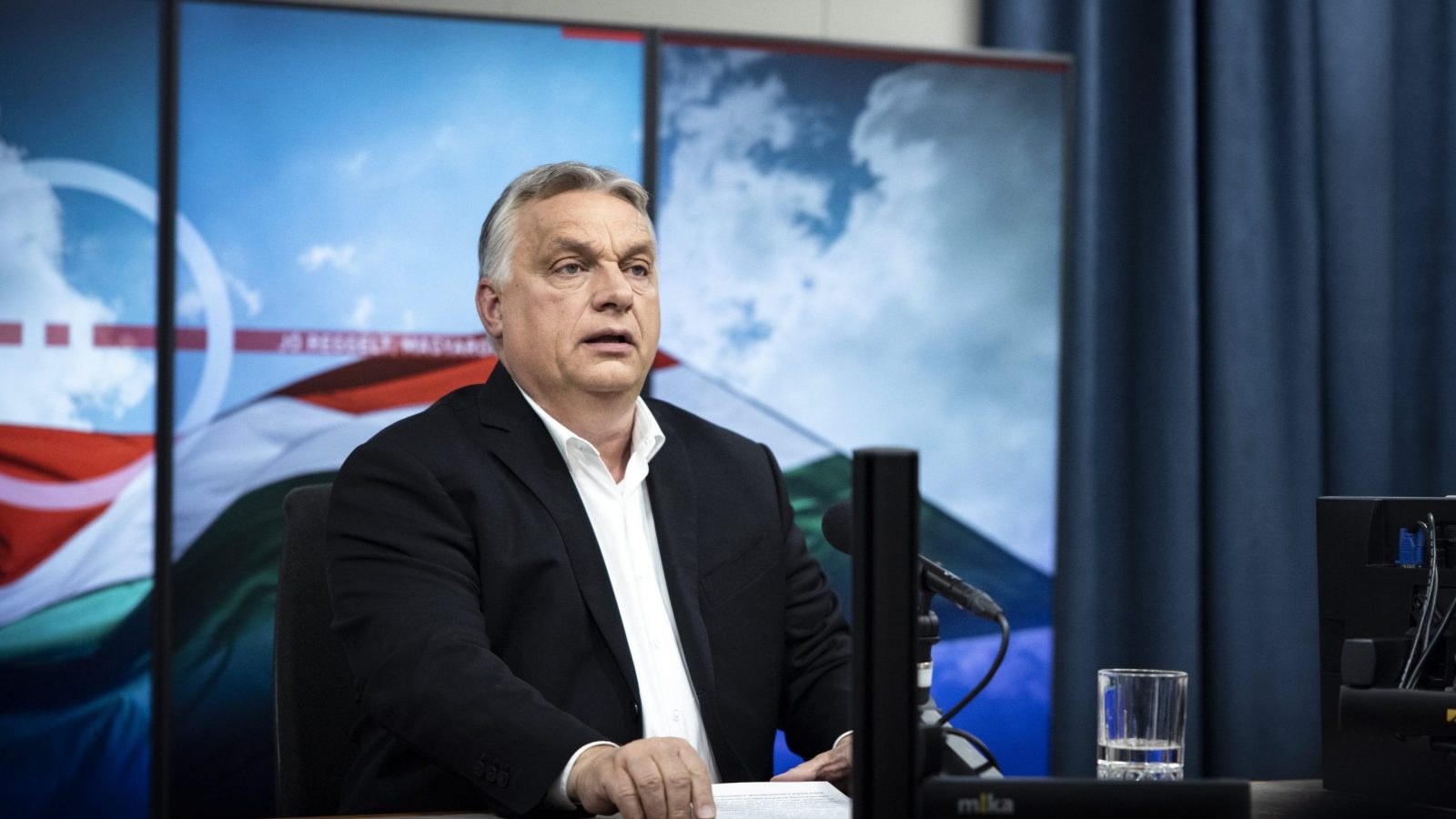
The Prime Minister stressed that earlier the leaders of EU Member States had agreed that only such measures could be adopted that duly took account of the different energy structures of countries and the sovereign right to determine their own energy mix. However, the President of the European Commission, “wittingly or unwittingly, attacked the hard-forged European unity”. During a war, this has serious consequences, he added.
He said those who have seas and ports are able to transport oil in tankers from any part of the world, but there are countries which do not have such options. Russian or any other oil can only be transported to Hungary via pipelines, “one end of the pipeline is in Russia, the other one is in Hungary,” that is a given, he explained, adding that we are unable to accept a proposal that disregards this circumstance.
The Prime Minister highlighted that the proposed oil embargo amounts to an atomic bomb dropped on the Hungarian economy, if it is adopted, “that is the end of the reduction of household energy bills,” and we may expect the price of petrol to increase to HUF 700 and that of diesel to HUF 800.
“The fight that I’m fighting now is a fight to protect the Hungarian reduction of energy bills,” Mr Orbán said, also mentioning that it would take years and investments worth hundreds of billions of forints to replace Russian oil with any other kind, while the transformation of the Hungarian energy conveyance system would require further investments in the thousands of billions.
He said it would take five years to complete the necessary investments. We have money for that because the EU provides funds for such purposes, though “we only have that money on paper because they haven’t yet given it to us, and until they give us the money, we can’t start” that project. Or we will have to procure funds from elsewhere, say from the money markets, he added.
Mr Orbán said at the same time it is well worth considering whether such a costly project that could only start functioning in 4 or 5 years’ time would make sense at all, given that the war is the cause of the whole thing, and “the war is taking place right now”.
He said if we see a proposal that conforms to the Hungarian interests, “then naturally, we’re happy to talk about it”. However, the proposal that is on the table now creates a Hungarian problem, and makes no proposal of any kind for solving that problem, he stated.
He stressed that until the Hungarian issue is resolved, there is no Hungarian ‘yes’ and “so I sent this proposal back to the President of the Commission for revision; we’re expecting a new proposal”.
He observed that the Commission’s proposal could create such a situation that quite simply there will not be any fuel in Hungary, and neither will there be quite a few products made from oil that are important for industry.
The Prime Minister said in continuation that the introduction of sanctions is not a good means as a matter of course; however, Hungary’s veto must be reserved for the issues that are the most important from a Hungarian point of view. Therefore, he was prepared to say ‘yes’ to the first five packages of sanctions, but made it clear that there would be a red line, namely, the energy embargo, he pointed out.
He further observed that the EU also wanted to add Patriarch Kirill to the sanctions list, but “we won’t support the addition of church leaders” to this list because this concerns the issue of freedom of religion for Hungarian communities, and that is sacrosanct.
He also said we are on the side of peace and are helping. He pointed out that the goal was for the parties to reach an immediate ceasefire and to start peace talks within the shortest possible time. He recalled that before the outbreak of the war he had paid a visit to Moscow in the interest of peace, something that the President of France and the German Chancellor had likewise failed to achieve.
He confirmed that Hungary – which is at the same time conducting the biggest humanitarian aid campaign in its history – must be left out of this war.
He said the entire Hungarian society had swung into action, “the Hungarian people put aside grievances about how the Ukrainians treated the Hungarians in years before because now we see suffering people”.
By supplying arms, we move away from peace, rather than moving towards it, “those who supply arms also bring trouble onto themselves, in particular, if the country at war is your neighbour,” he argued.
The Prime Minister pointed out that “Transcarpathia is now within firing range” because someone supplied or was about to supply weapons, and the Russians will destroy the transport nodes where such supplies can be offloaded or transported on.
Mr Orbán said he is planning to introduce the members of his new, significantly reshuffled government between 20 and 30 May. He indicated that there will be many and meaningful changes in response to the fact that many and meaningful changes have taken place in the world, too.
He stressed that Christian democratic-national governments are formed in such a way that they attempt to understand the challenges of the next four years.
We must reinforce our defence against the pressure of migration, he stated, adding that “the pandemic hasn’t gone away yet,” and the world is not prepared for a pandemic on such a scale, while there is also a war under way. “We must form a government which will be able to defend Hungary against these challenges,” Mr Orbán said.